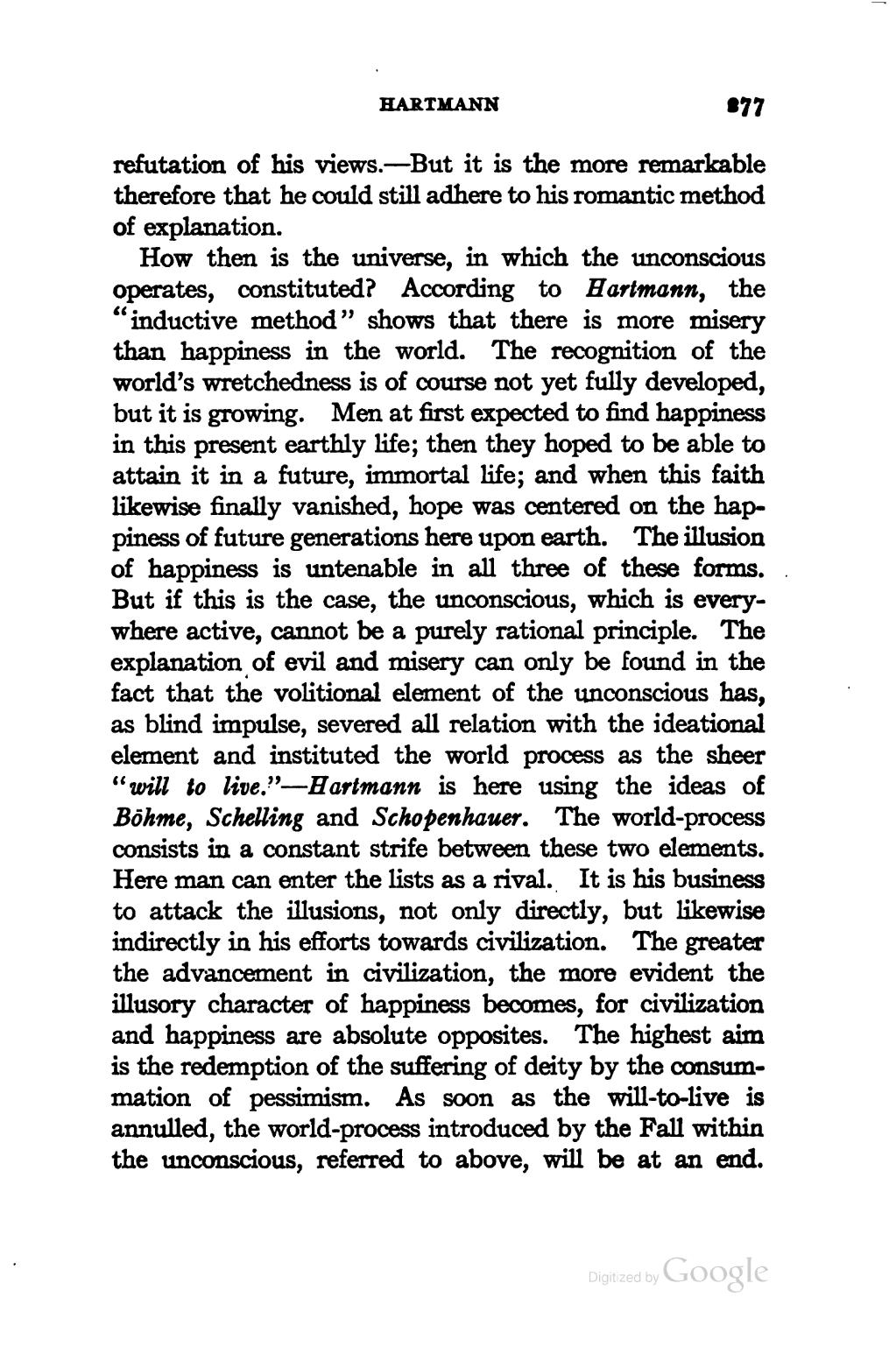refutation of his views.—But it is the more remarkable therefore that he could still adhere to his romantic method of explanation.
How then is the universe, in which the unconscious operates, constituted? According to Hartmann, the "inductive method" shows that there is more misery than happiness in the world. The recognition of the world's wretchedness is of course not yet fully developed, but it is growing. Men at first expected to find happiness in this present earthly life; then they hoped to be able to attain it in a future, immortal life; and when this faith likewise finally vanished, hope was centered on the happiness of future generations here upon earth. The illusion of happiness is untenable in all three of these forms. But if this is the case, the unconscious, which is everywhere active, cannot be a purely rational principle. The explanation of evil and misery can only be found in the fact that the volitional element of the unconscious has, as blind impulse, severed all relation with the ideational element and instituted the world process as the sheer "will to live."—Hartmann is here using the ideas of Böhme, Schelling and Schopenhauer. The world-process consists in a constant strife between these two elements. Here man can enter the lists as a rival. It is his business to attack the illusions, not only directly, but likewise indirectly in his efforts towards civilisation. The greater the advancement in civilisation, the more evident the illusory character of happiness becomes, for civilisation and happiness are absolute opposites. The highest aim is the redemption of the suffering of deity by the consummation of pessimism. As soon as the will-to-live is annulled, the world-process introduced by the Fall within the unconcious, referred to above, will be at an end.

